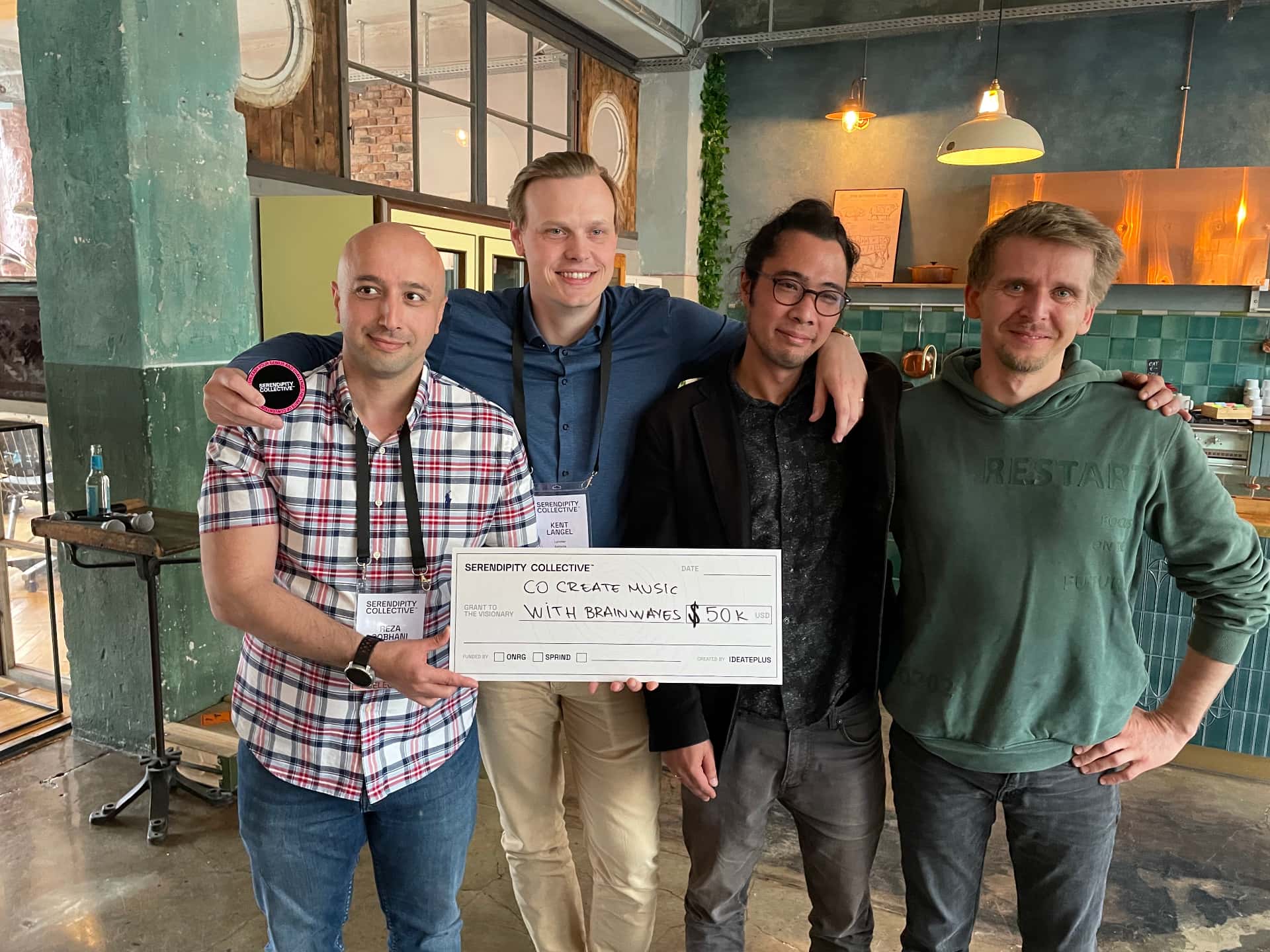
Photo: Publicity photo. From left: Reza Sobhani, Kents Langels, Jakeins Pusons and Mārtiņš Dāboliņš.
CO CREATE MUSIC WITH BRAINWAVES
Baltic neuroscientists win future technology competitions in Berlin.
Systematic musicology researcher Jachin Edward Pousson and professor Valdis Bernhofs of the Jāzeps Vītolas Latvian Academy of Music (JVLMA), independent visual artist and signal processing expert Mārtiņš Dāboliņš, as well as the owner and researcher of the biomedical technology company group "Lanmer" Kent Langel ) and engineer Reza Sobhani joined forces and won an award at the innovation grant platform "Serendipity Collective", which took place for the first time in Berlin on May 10 and 11, Kaspars Antes, public relations specialist of Jāzeps Vītolas Latvian Academy of Music, informs.
Applications for researchers were open from February to April 2023. A total of 225 participants from all over the world submitted innovative ideas for future technology development. During two interviews, the jury selected eight ideas for the final in Berlin. The teams in Berlin competed for a grant to start the implementation of the innovation ("start-up").
The event in Berlin took place in the form of a seminar competition. All eight teams initially worked together to refine each team's approach. At the end of the seminar, a jury of scientists, technology experts, and potential investors from the USA, Germany, and Switzerland selected the three best teams. It awarded them a grant to implement the innovation.
After successfully completing the start-up phase in December 2023, all three teams will be eligible for further support and investment in developing innovative technologies. The "Serendipity Collective" platform is formed by "SPRIND" – the German Federal Innovation Agency, the Swiss "Ideate Enterprise Innovation" and the US "Office of Naval Research ONR Global".
The idea of the Baltic researchers is based on creating music with brain waves using electroencephalography (EEG) signals for musical interaction. As part of Jaken Pousson's doctoral thesis, JVLMA has developed a brain-computer music interface (BCMI), which allows the musician to control musical and visual parameters using individual EEG-recorded parameters. Brain signals during music performance. The Baltic research team proposes to continue Pusson's idea by creating a multi-user BCMI system that allows several people to make music or mixed media together using real-time EEG signals. This would open the possibility for a wide range of non-verbal communication in the future between all parties involved in music making, including musicians and listeners. In the future, non-verbal communication based on brain waves will also be an object of research in a clinical context.